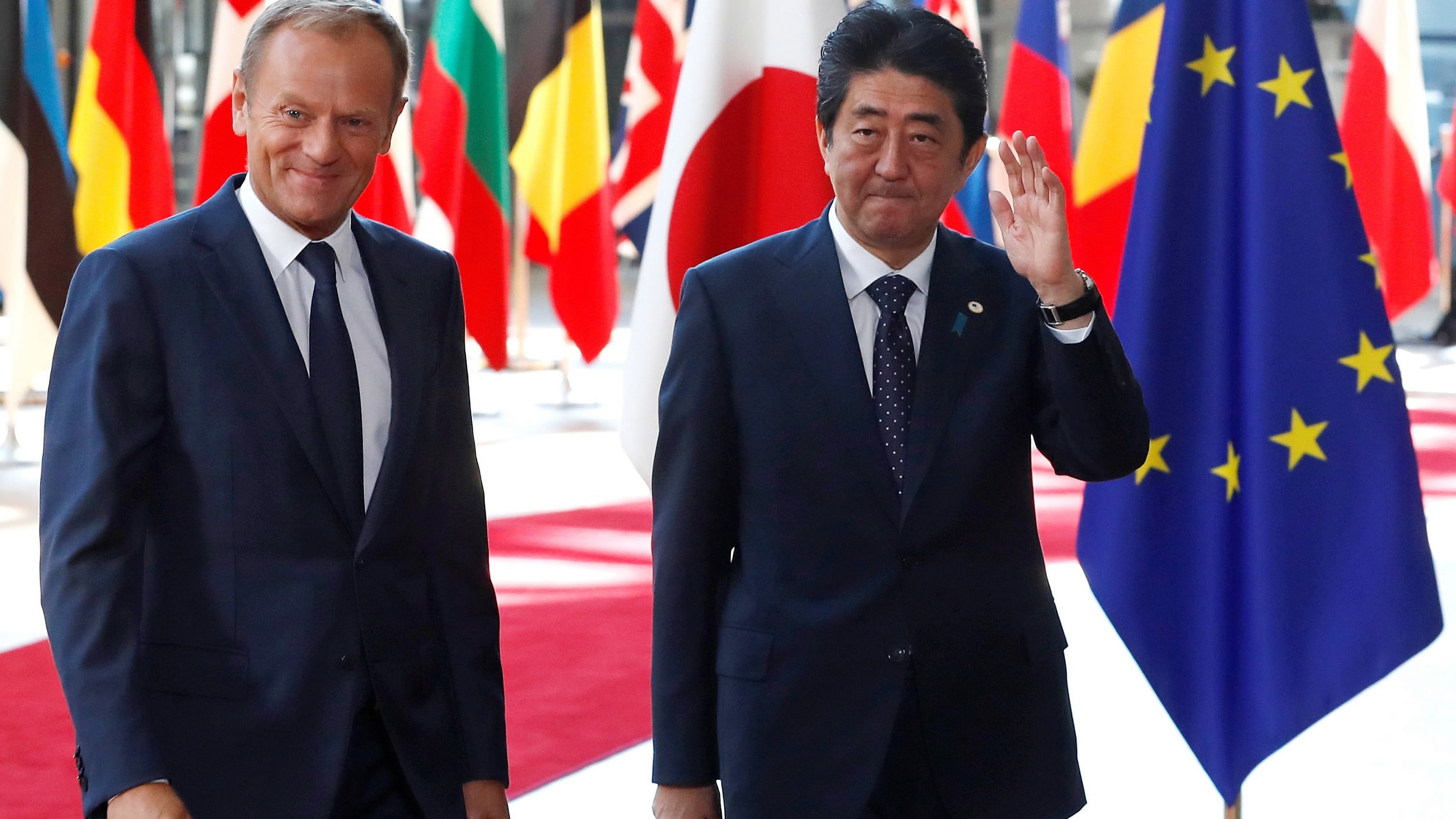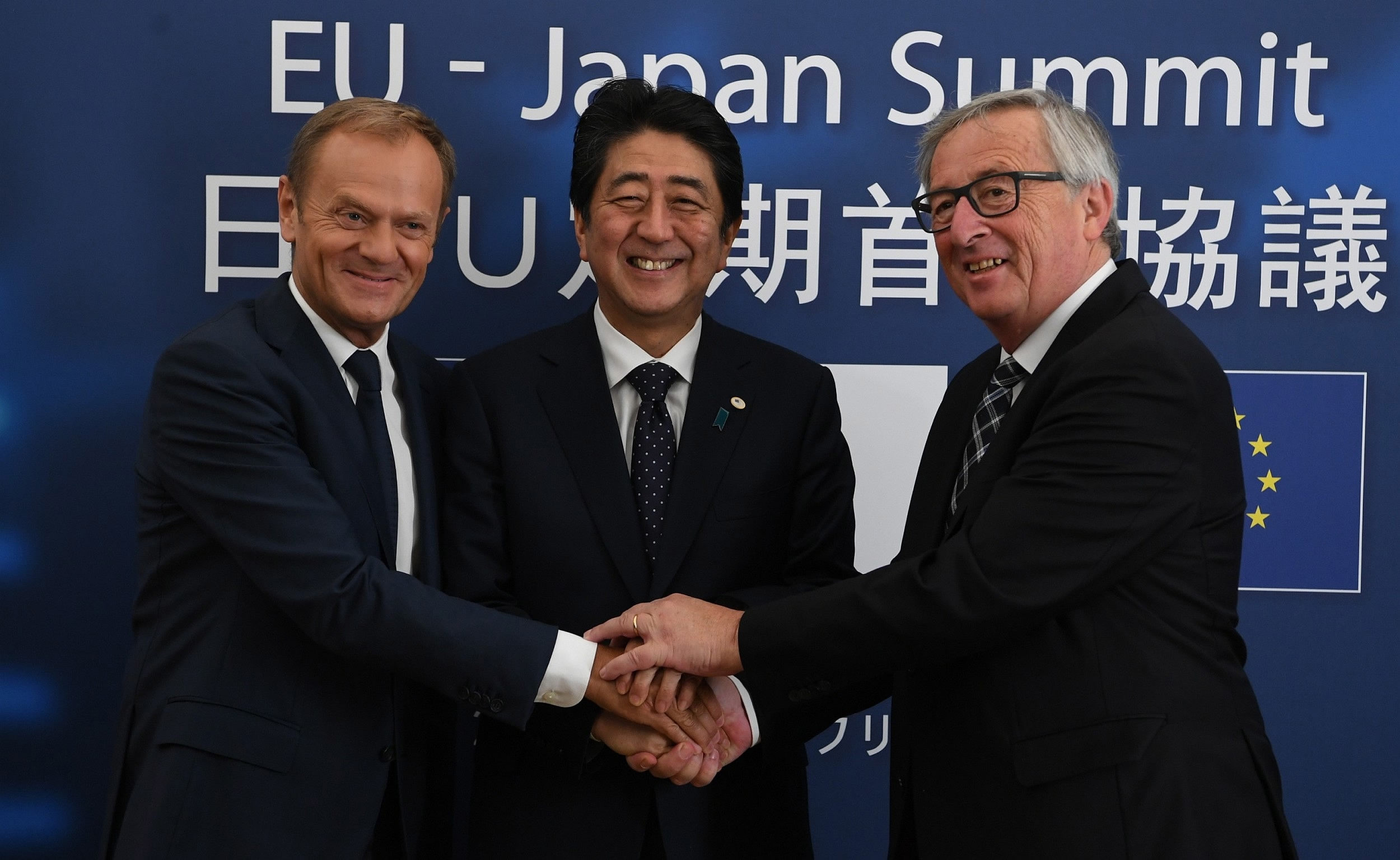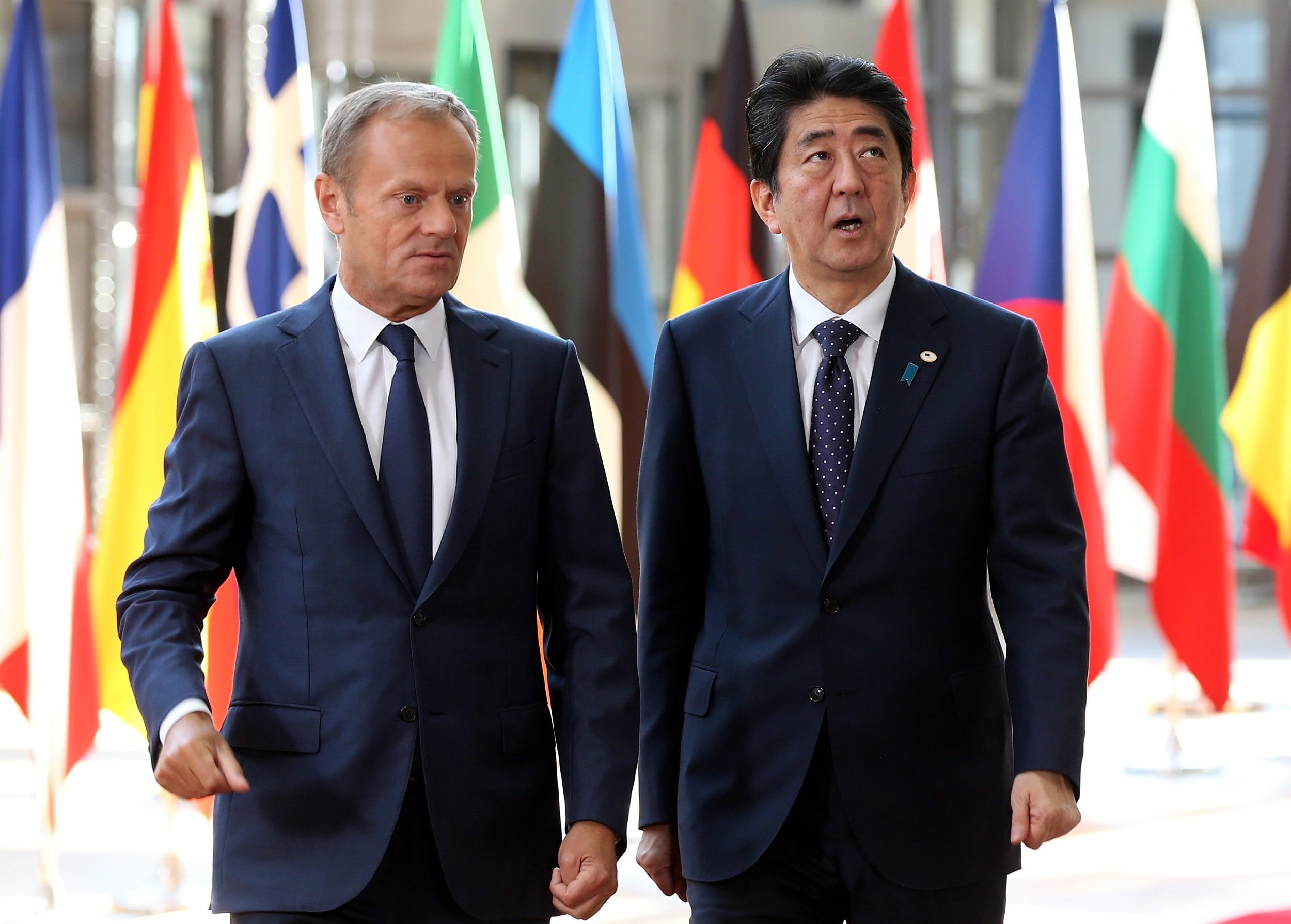
Politics
22:22, 06-Jul-2017
EU, Japan seal free trade deal in signal to Trump

Japan and the European Union sealed a free trade deal on Thursday, creating the world's biggest open economic area and signaling resistance to what they see as US President Donald Trump's protectionist turn.
Signed in Brussels on the eve of the G20 summit in Hamburg, the "political agreement" between two economies accounting for a third of global GDP is heavy with symbolism. It it leaves some areas of negotiation still to finish, though officials insist the key snags have been overcome.

Japan's Prime Minister Shinzo Abe (C) is welcomed by European Council President Donald Tusk (L) and European Commission President Jean-Claude Juncker at the start of a European Union-Japan summit in Brussels, Belgium on July 6, 2017. /VCG Photo
Japan's Prime Minister Shinzo Abe (C) is welcomed by European Council President Donald Tusk (L) and European Commission President Jean-Claude Juncker at the start of a European Union-Japan summit in Brussels, Belgium on July 6, 2017. /VCG Photo
"Ahead of the G20 summit tomorrow, I believe Japan and the EU are demonstrating our strong political will to fly the flag for free trade against a shift toward protectionism," Japanese Prime Minister Shinzo Abe told a joint news conference with EU institutional chiefs Donald Tusk and Jean-Claude Juncker.
In the works for four years, the pact has been pushed over the line towards a final treaty signature in the coming months by the election of Trump and his moves to ditch a Pacific trade pact that included Japan and leave talks with the EU in limbo.
"Although some are saying that the time of isolationism and disintegration is coming again, we are demonstrating that this is not the case," European Council President Tusk said.
"There is no protection in protectionism," added Juncker, the president of the executive European Commission, who played down any suggestion there would be further negotiating problems, and said he hoped the treaty could go into effect early in 2019.
ALARM OVER "AMERICA FIRST"
Fears of cheaper import competition for European carmakers and Japanese dairy producers were among the thorniest issues, but officials said the two sides were driven by a shared alarm at Trump's apparent shift away from multilateral open trading systems towards an aggressive "America First" policy.
Tariffs on much of their bilateral trade — which Abe noted accounts for some 40% of total world commerce — will be phased out over some years and other economic areas, such as Japan's public tender system, will be opened up.
Both sides, which are also forging a parallel cooperation agreement on broader political issues such as security, crisis aid and climate change, forecast that the deal will boost economic growth and employment in Japan and Europe.

Japan's Prime Minister Shinzo Abe (R) is welcomed by European Council President Donald Tusk at the start of a European Union-Japan summit in Brussels, Belgium on July 6 , 2017. /VCG Photo
Japan's Prime Minister Shinzo Abe (R) is welcomed by European Council President Donald Tusk at the start of a European Union-Japan summit in Brussels, Belgium on July 6 , 2017. /VCG Photo
One detail to be ironed out is how complaints from business over how authorities apply the treaty will be dealt with — a touchy subject in Europe due to concerns that trade pacts give too much power to big multinationals.
European parliaments nearly blocked a deal with Canada last year over such issues.
The European carmakers' lobby had called for at least seven years to phase out tariffs of up to 10% on Japanese cars, and a senior EU official said they would "not be disappointed".
Most EU food exports to Japan will also see tariffs removed over time, although some sensitive sectors such as cheese and other dairy products will still be limited by quotas.
More than 200 European products that benefit from geographic protections — for example Parma smoked ham which must come from around the Italian city - would not face Japanese competition under those names, he added.
Scotch whisky, however, might not benefit from such a deal, as Britain is due to leave the EU in 2019.
Tusk took the opportunity to scoff at arguments in Britain for Brexit on the grounds that London could cut itself better trade deals outside the Union.
EU leaders said the weight of the combined economy can more easily crack open foreign markets.
In an ironic nod to Brexit supporters' rallying cry of "Global Britain", Tusk, a former Polish premier, signed off a tweet confirming the Japan deal with the words "Global Europe!"
(Source: Reuters)
7972km

SITEMAP
Copyright © 2018 CGTN. Beijing ICP prepared NO.16065310-3
Copyright © 2018 CGTN. Beijing ICP prepared NO.16065310-3